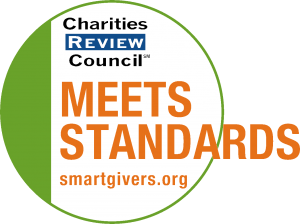Impact and Programs
Accomplishments
We are pleased that alongside residents, participants, and students, PPL achieved many goals in 2023. In Housing Stability, 98% (Goal: 96%) of households maintained housing for 24 months and 110 (Goal: 75) units of affordable housing were improved. In Career Readiness services, 167 (Goal: 206) participants secured employment; 91% (Goal: 85%) of people who started jobs retained employment for 12 months or more; 99% (Goal: 88%) of credit-eligible students graduated from alternative high schools; and participants who secured jobs earned a $22.04 (Goal: $20) average starting hourly wage. Related to our strategic pillars of racial equity, strong neighborhoods, and systems change: 61.5% of staff identified as BIPOC (Goal: Maintain and strengthen BIPOC majority); 42% (Goal: 40%) of PPL board members were BIPOC; 194 (Goal: 100) residents and participants engaged on policy and advocacy; and 11 (Goal: 3) PPL legislative priorities advanced through key milestones during the 2023 session. Overall, we are encouraged by all that residents, participants, and students accomplished in 2023, and PPL will continue to work with the communities we serve, and are a part of, in support of further success in the years to come.
Current Goals
We established goals for major program areas in 2024. In Housing Stability, we expect 96% of households will achieve 24-month housing stability and 110 units of affordable housing will be improved. Through Career Readiness services, 300 individuals will secure employment; 85% of them will retain it for 12 months or more; 90% of credit-eligible students will graduate from PPL alternative high schools; and participants who secure a job will earn an average starting wage of $21 per hour. PPL’s work is upheld by five strategic pillars, including race equity, strong neighborhoods, and systems change, that aim to center the communities we serve. Goals that strengthen these strategic pillars include: 40% of PPL board members will be BIPOC; 55% of staff identify as BIPOC; 150 community members actively participate in project planning; and 150 residents, participants, and students engage on policy and advocacy.
Community or Constituency Served
PPL works with people and places disproportionately affected by systemic inequities and the racial disparities that result from them, particularly in income and housing; 88% of our participants are Black, Indigenous, or People of Color (BIPOC). Our work to be accountable to the communities we serve and are a part of is guided by our 2023-25 Strategic Plan, which builds on our track record of effective programming while grounding our work in race equity, cultivating a focus on systems change, and making a commitment to asset-building in BIPOC communities. In this plan, we have outlined major strategies that support our cross-organizational goals of influencing key systems that drive racial disparity and elevating the voices of the people PPL works with. By establishing goals, identifying strategic pillars, and employing flexible, embedded program evaluation, we maintain a standard of accountability as we work towards our vision of safe, resilient, and equitable communities.
Geographic Area Served
PPL serves the Twin Cities region of Minnesota, including Minneapolis, St. Paul, and several suburbs.
